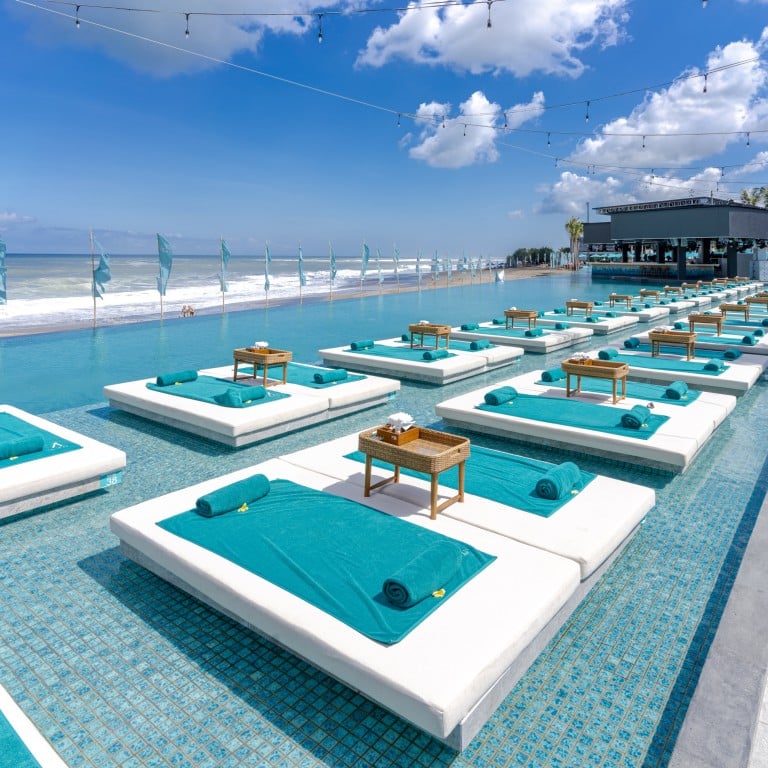
Inside 3 new Bali beach clubs in Kuta, Canggu, Uluwatu, infinity pools, gourmet food, and daybed-and-drinks deals to fit any budget
- Ku De Ta started the luxury beach club trend in Bali in 2000, and today there are almost 40 on the island. We visit three newcomers to see what they offer
- Atlas Beach Fest in Canggu is the largest in Southeast Asia, Karma Beach Bali sits atop and below a cliff in Uluwatu, Kuta Social Club boasts a rooftop pool
In the year 2000, Ku De Ta, an Ibiza-style beach and pool club, opened in Seminyak, a popular beach on Bali’s southwest coast.
It was an instant hit and continues to draw crowds. On August 16, more than 3,000 people flocked to the venue for its world-famous White Party. But Ku De Ta is no longer the only place where you can order good food and drinks from the side of a beachfront infinity pool.
Spain’s Ibiza will always be the home of beach clubs but Bali is the beach club capital of the world, with nearly 40 venues to choose from, new clubs opening all the time and existing venues reinventing themselves.
Here are three of the most noteworthy latest additions:
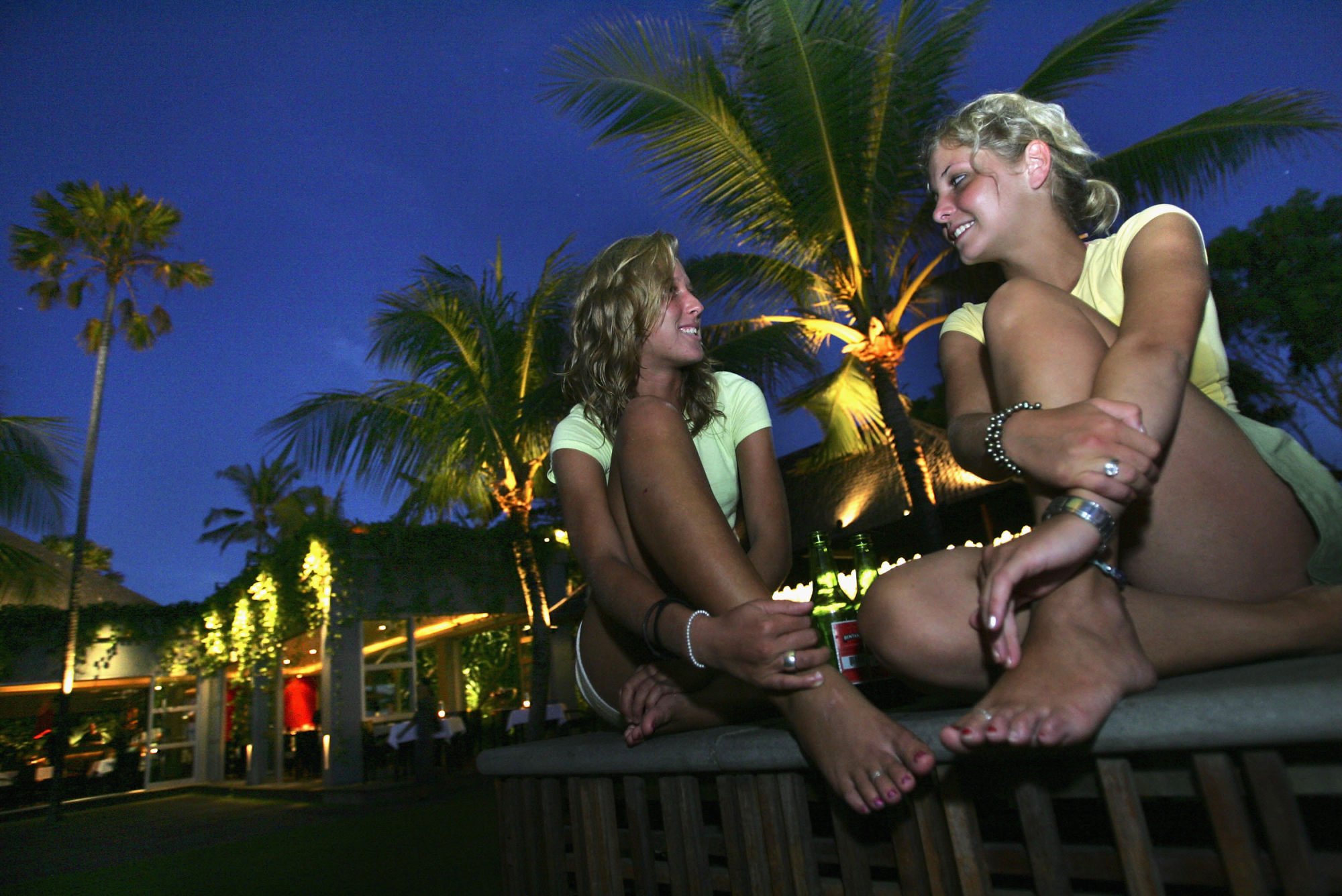
Atlas Beach Fest
The biggest beach club in Southeast Asia, Atlas Beach Fest made headlines even before it opened.
It was supposed to be named Holywings Bali Beach Club, part of Holywings, one of the largest hospitality chains in Indonesia, with more than 30 bars, cafes and nightclubs.
But in June, all Holywings venues were forced to close following a social-media promotion gone horribly wrong; free bottles of gin were offered to men named Mohammed – a big no-no in a conservative, Muslim majority country such as Indonesia.
So when the Bali outlet opened on July 19, it had a new name.
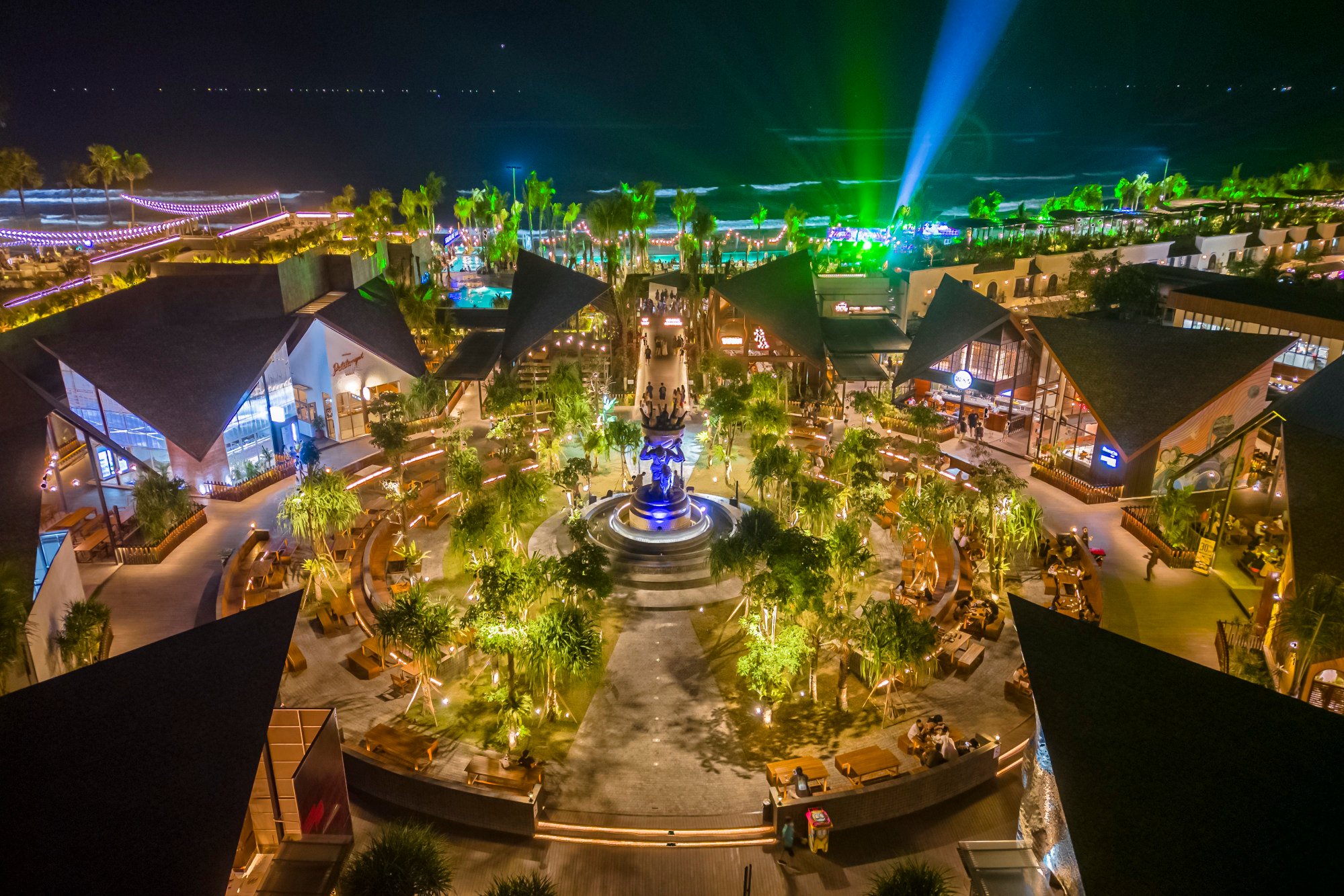
A spokesperson for Atlas declined to comment on the screw-up or the large police raid that took place at the Bali outlet soon after it opened. It was discovered that Atlas did not have all the permits required to start trading but was allowed to stay open as “an act of good faith”.
The problem now appears to have been solved, according to a recent statement from Atlas that contained gushing endorsements from high-ranking police and military figures who credited the venue for its contribution to the Balinese economy and the 1,500 jobs it created.
So what can you expect? Set on Berawa Beach, in the heart of Bali’s most popular tourist district, Canggu, Atlas is billed as a “One Stop Lifestyle Centre”. A simpler way to describe it is as a tropical Disneyland for big kids, though small kids will doubtlessly like it, too.
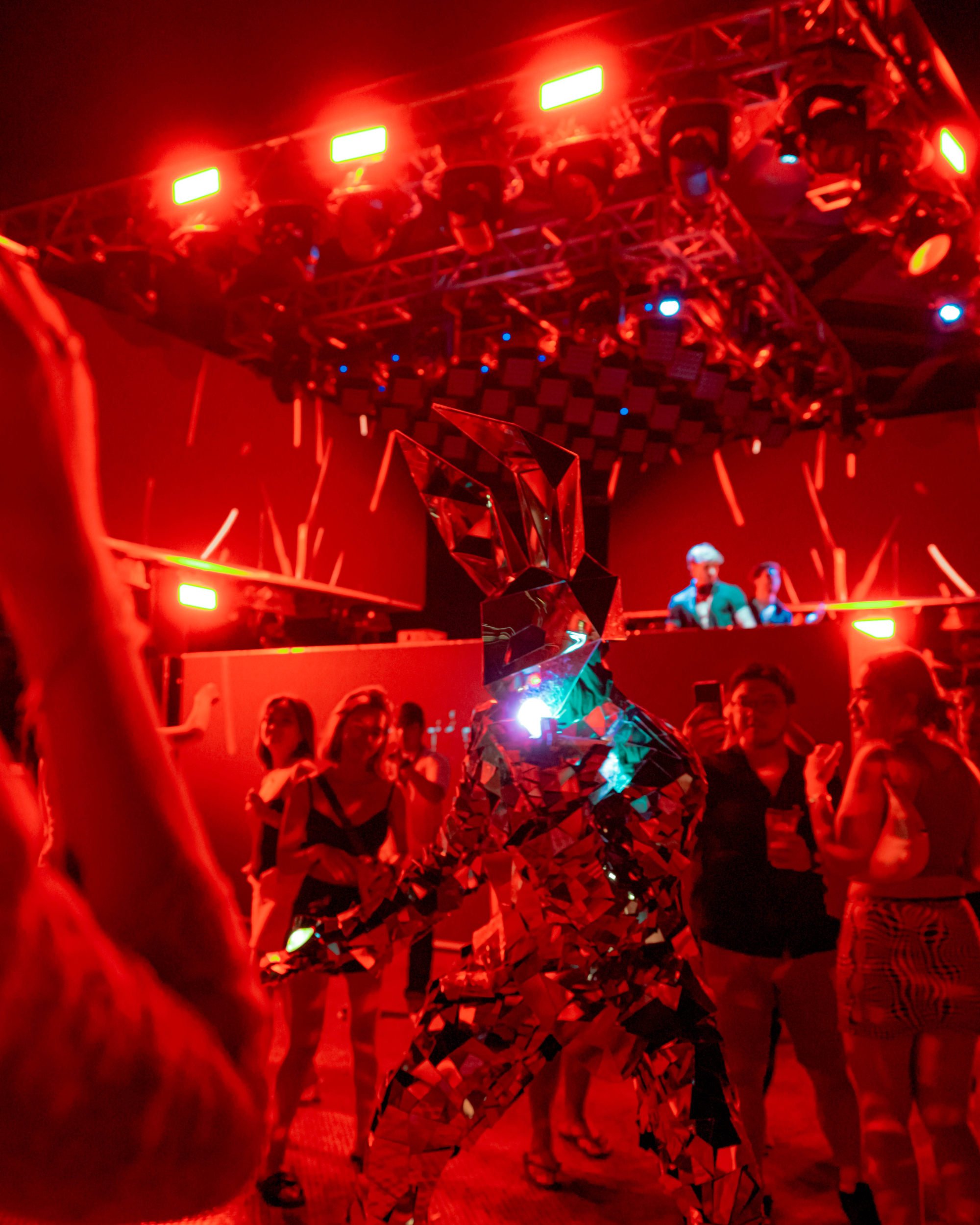
The entrance features Colosseum-like walls that spill onto a walkway elevated over water and encircled by an artificial waterfall. It leads to a retail village with gardens, statues, art installations and 52 outlets, essentially a highly sanitised version of an Asian street food market.
Many of these outlets are operated by small- and medium-sized businesses that already have successful restaurants in Bali, like Pison Coffee, Manhattan Slice, Sinamon, a patisserie shop, and Sushi Toko. Getting into this section of the club is free.
There is a charge of 150,000 rupiah (US$10) to get into the beachfront section, the actual beach club. This fee includes one alcoholic or two non-alcoholic drinks.
5 Bali wellness experiences that aren’t yoga put to the test
Atlas has the longest beachfront pool and longest beach bar in Bali, and a massive dance floor and big-name DJs.
A variety of daybed and private sofa areas can be booked for 1 million to 20 million rupiah for the day. The charge is redeemable for food and drinks, though that may not get you far, especially if you order a bottle package.
The top-of-the-line Crazy Rich Atlas package comes with three bottles of Azul Reposado, a very special kind of tequila, 12 bottles of Nicolas Feuillatte Champagne, a fruit platter and soft drinks. The price? A cool 60 million rupiah.
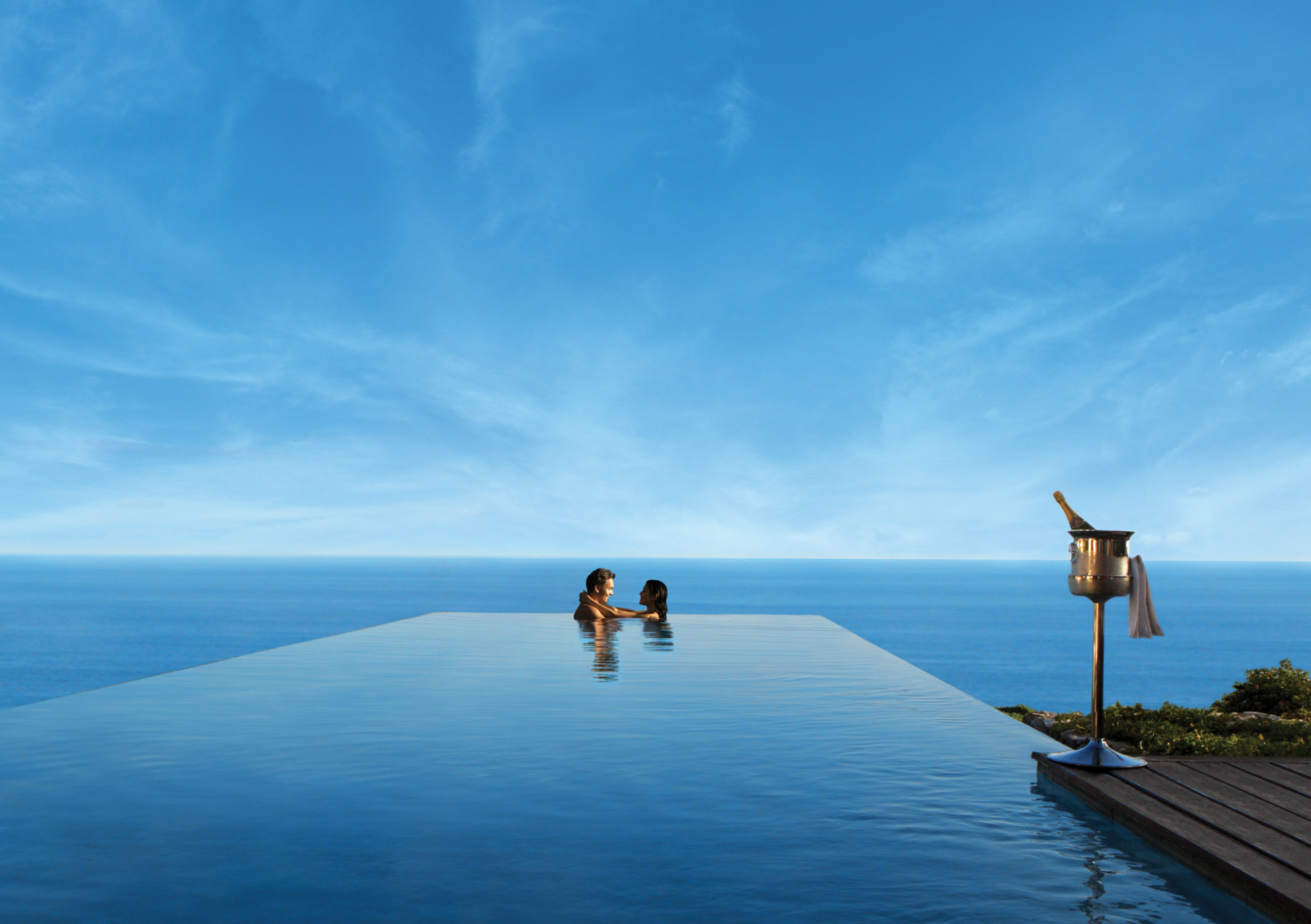
Karma Beach Bali
As if operating a tourism business in Bali during the pandemic wasn’t tough enough, last November a fire tore through Karma Beach Bali, a superlative club tucked away on a sugary white beach at the bottom of a 100-metre-high cliff in Uluwatu on the south coast.
Karma Beach Bali is normally accessed via a 60-second ride on a private inclinator. But with the inferno raging below, emergency workers had to traverse a narrow jungle path to extinguish the fire and clear the debris.
After more than six months of rebuilding, reimagining and repair, Karma Beach Bali has risen from the ashes with a fresh design and three conjoined sections, starting with the new Phoenix Bar, which opened in August.
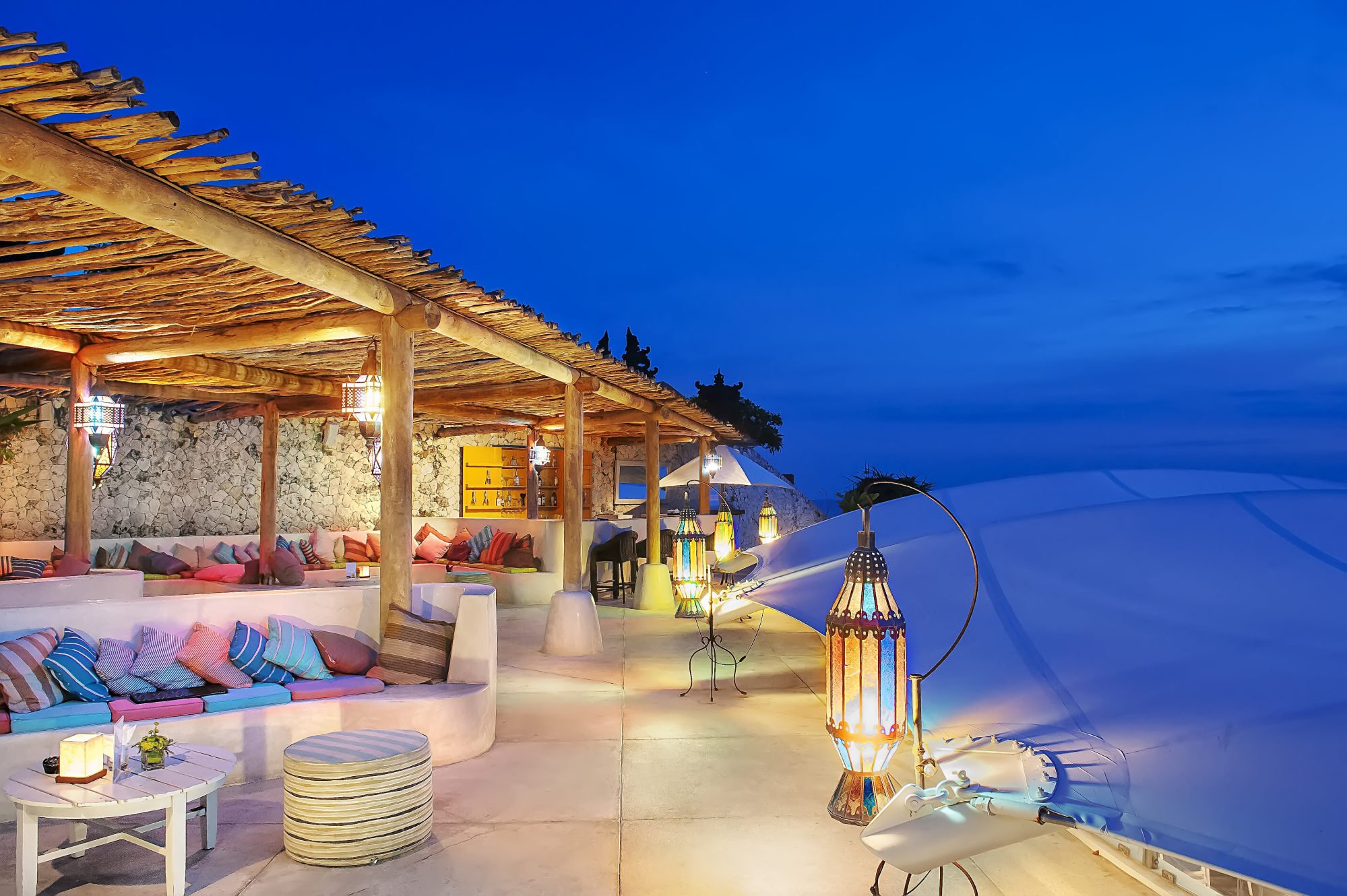
“We gave it that name because it rose like a phoenix from the ashes,” says South African Shaun Duenhofen, general manager of Karma Kandara, the luxury resort that oversees the beach club. “It’s a tiki-style pop-up bar where our mixologists collaborate with mixologists from overseas to build the most innovative cocktails in Bali.”
The second section, Le Club 22, is a whitewashed beachfront restaurant made entirely of wood and open to the elements, the sun and the sea during the day, and at night the stars. The menu includes dishes like Japanese Sakoshi oysters on the half shell and whole grilled barramundi.
The third and largest section is the beach itself, freckled with daybeds and fronted by a gin-clear lagoon with gently lapping waves. There are coral blooms and lots of little fish to see beneath the surface, and the water is always warm enough for swimming.
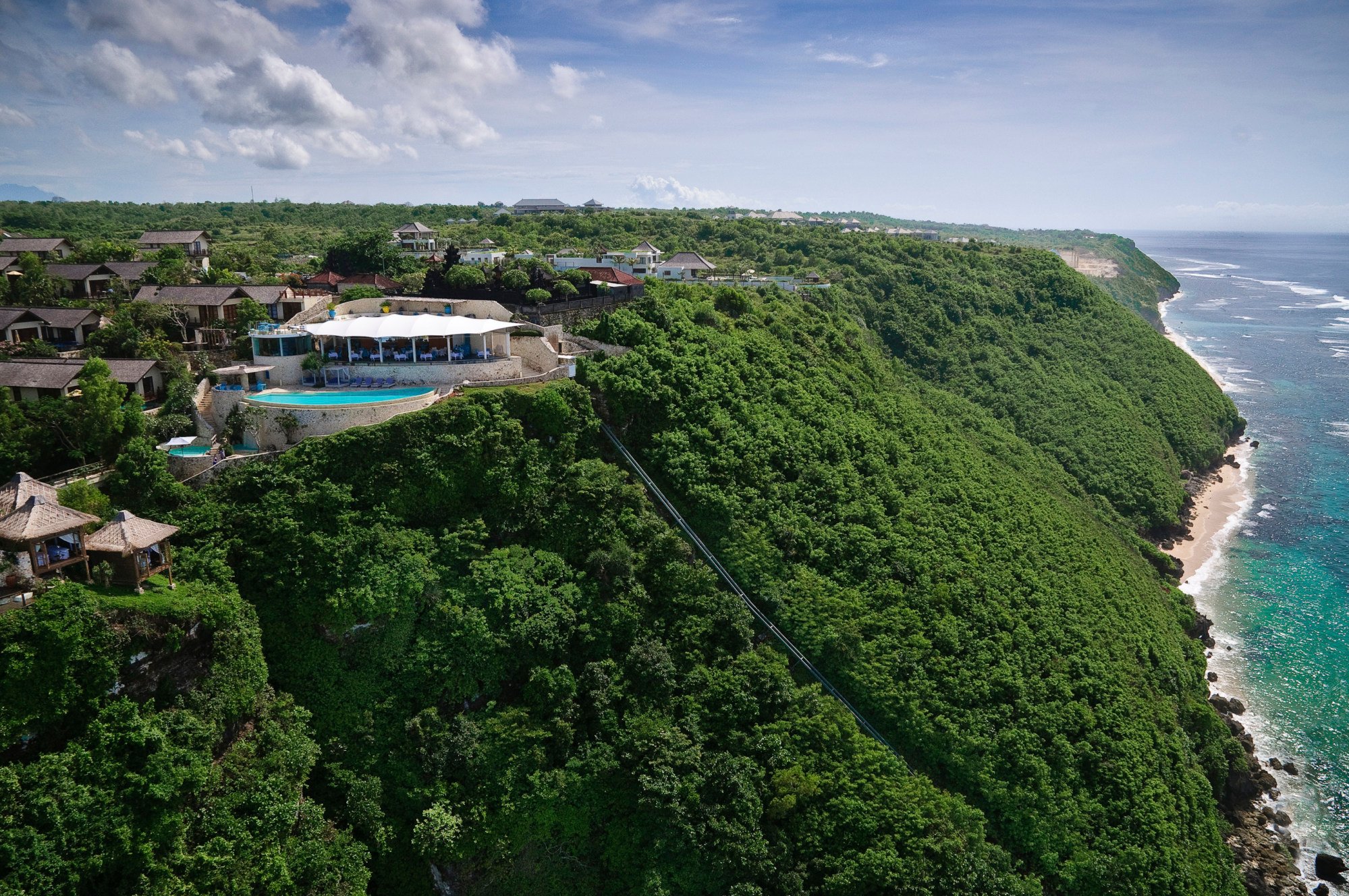
“The beauty of this part of the club,” says Duenhofen, “is that we didn’t have to build anything. We just cleared the debris away and left it more open, with more space for sunbeds and umbrellas.”
Access to Karma Beach Bali is 650,000 rupiah per person, 450,000 of which is redeemable for food and drinks. There’s no charge for daybeds; they’re assigned on a first-come, first-served basis.
Kuta Social Club
Before the pandemic Kuta, a budget beachfront tourist district near Bali’s international airport, was a total mess, overrun with hawkers, who would pester passers-by with the tenacity of mosquitoes, and rowdy young tourists, many of whom drank more than they should.
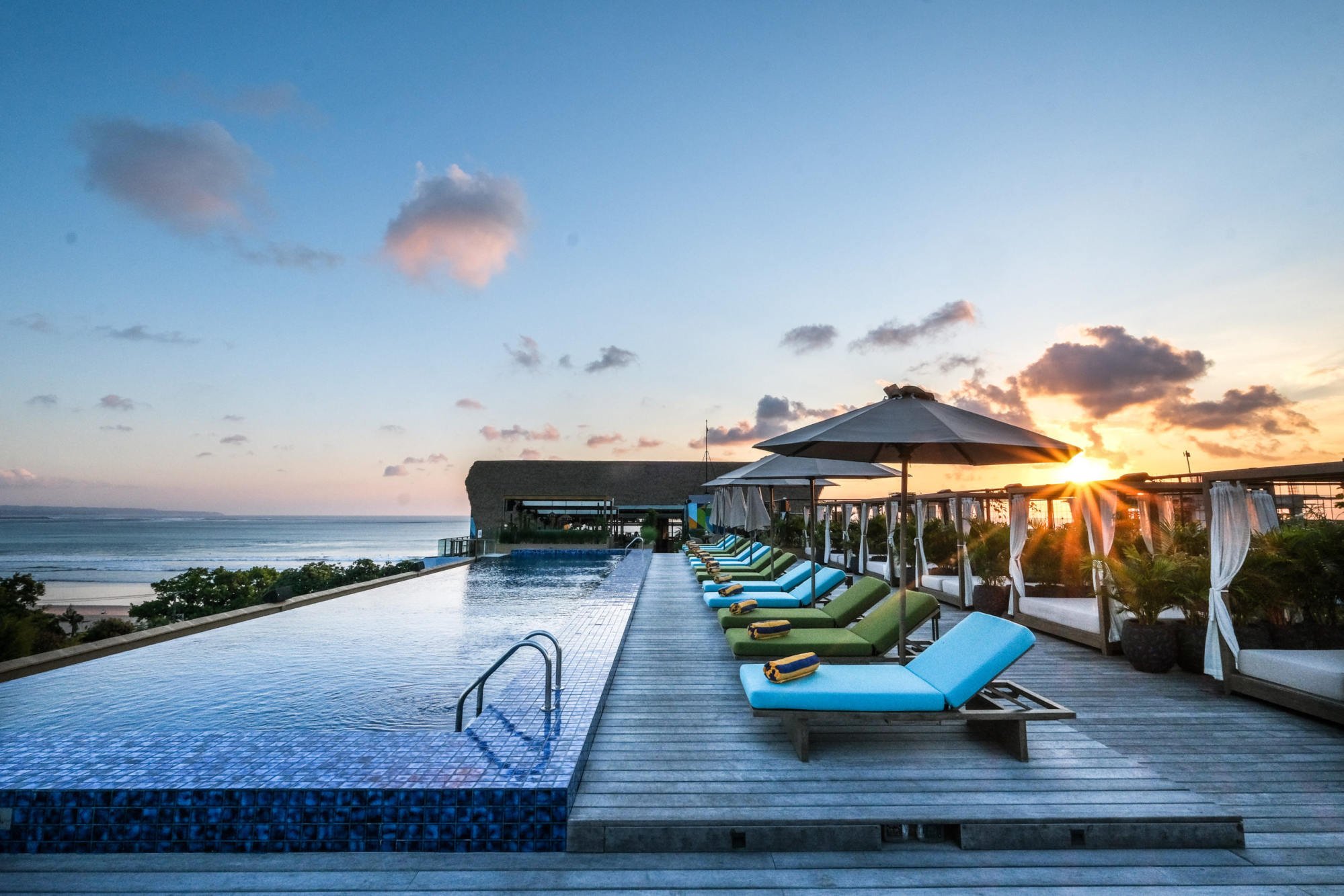
Kuta was one of the first tourist precincts in Bali abandoned during the pandemic – a blessing in disguise that put an end to its cheap construction, public drunkenness, trash and perpetual traffic jams.
Today, Kuta’s beach is cleaner and less crowded than Canggu’s. The traffic has mellowed and there are a handful of well-conceived new restaurants and hotels, such as Mamaka by Ovolo.
An urban resort with a retro 1950s Miami look and feel, Mamaka doesn’t take itself too seriously. Its 191 rooms come in five categories, starting at 1,530,000 rupiah per night for a box-like room with one big window and hitting 3,870,000 rupiah per night for the spacious Swagger Suite, which comes with 180-degree ocean views.

Set on its roof, Kuta Social Club is technically a pool club but with a beach club/beach snack vibe. There are two sections. Around the back, you’ll find the highest rooftop pool in Kuta surrounded by daybeds and cabanas with views of the beach and urban sprawl.
Non-hotel guests are welcome and there is no entrance fee nor minimum spend, with cocktails starting at 100,000 rupiah and small but scrumptious lobster rolls for 150,000.
The front of the club has uninterrupted views of the Indian Ocean, offshore reefs and the Bukit Peninsula on the southern tip of Bali. During the day and early evening, this is a restaurant with sofa-style chill areas and DJs. The menu has a Mediterranean focus, with fresh seafood smoked on charcoal and in the traditional Balinese style over coconut husks.
“A lot of people think Kuta is all about beers and Bintang singlets,” says Mamaka’s general manager, Joel Bartlett, an Australian. “But when you’re sitting here on the rooftop, looking at everyone on the beach and the clear blue waves, your perception changes.”
